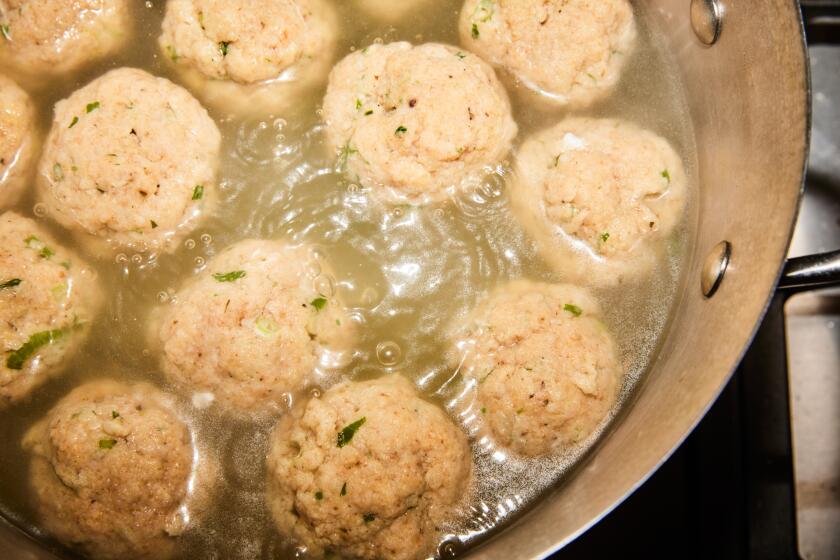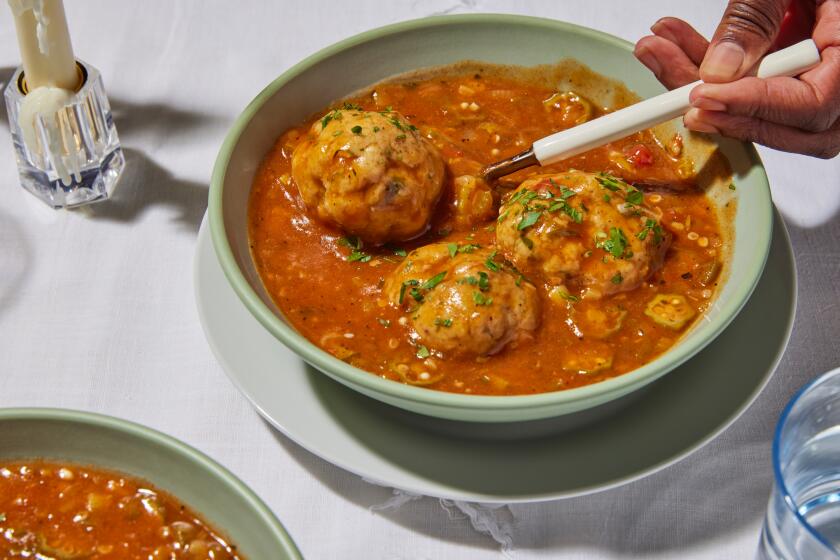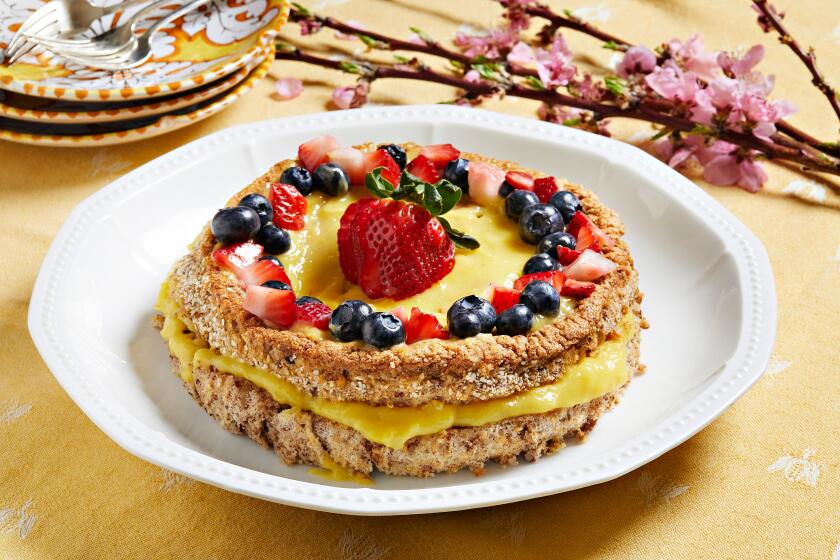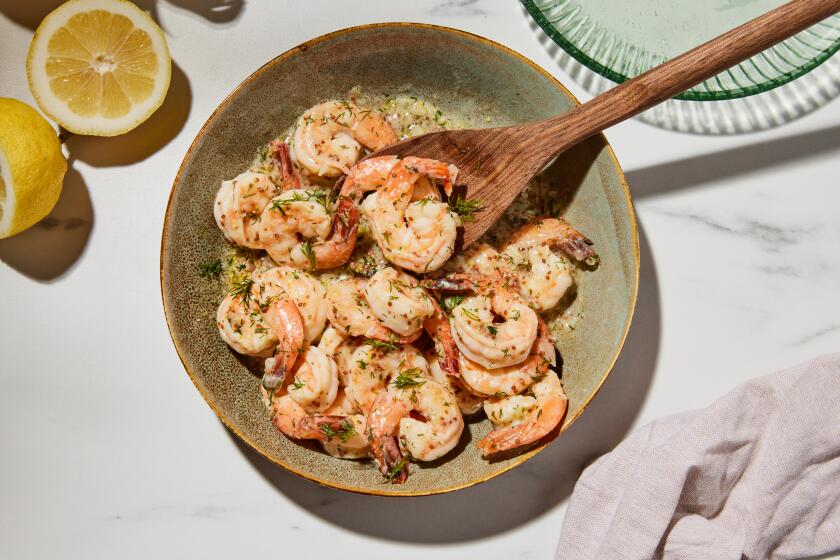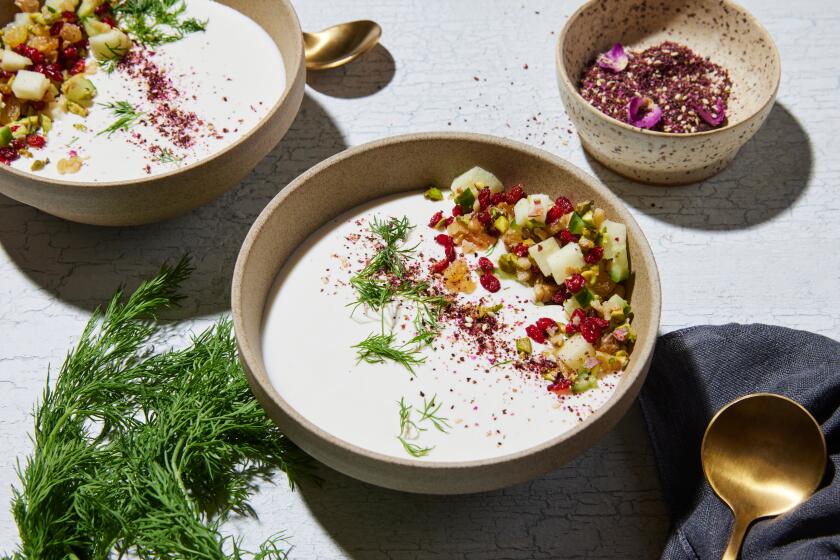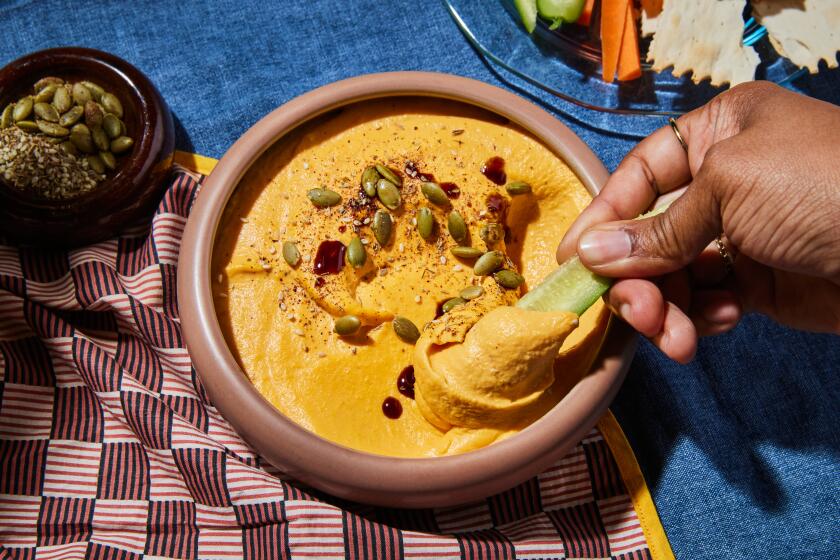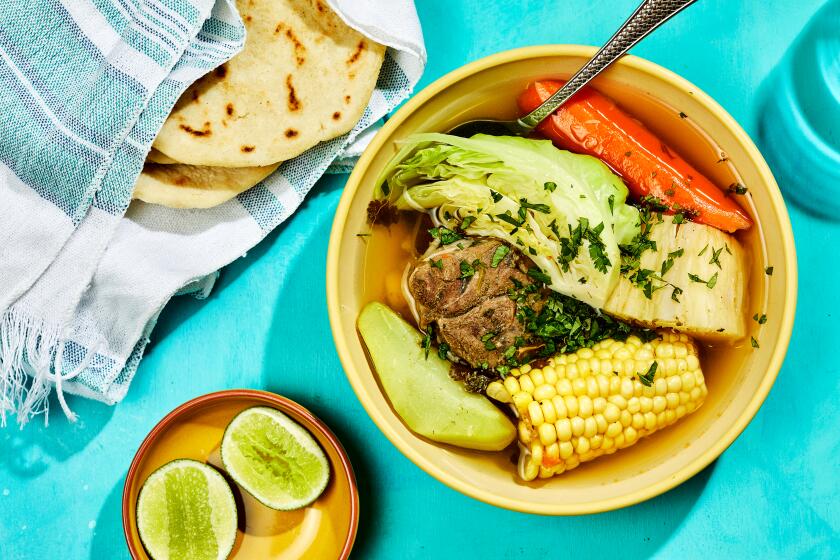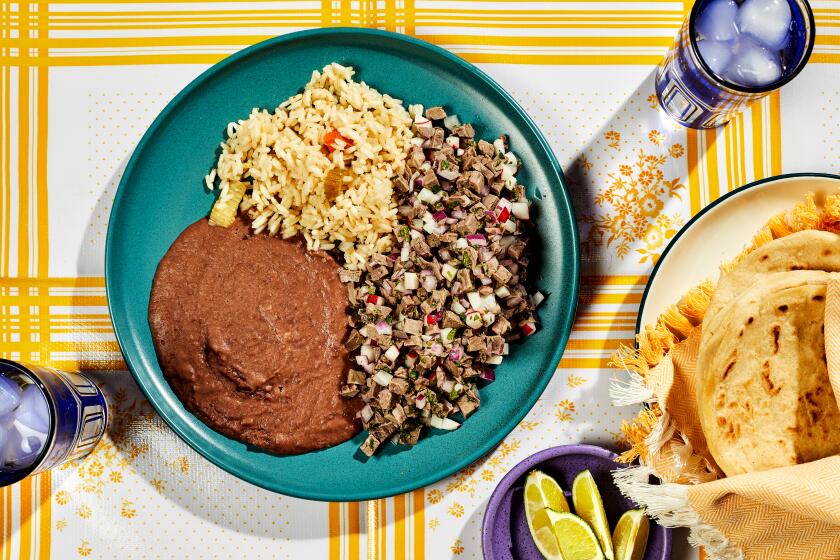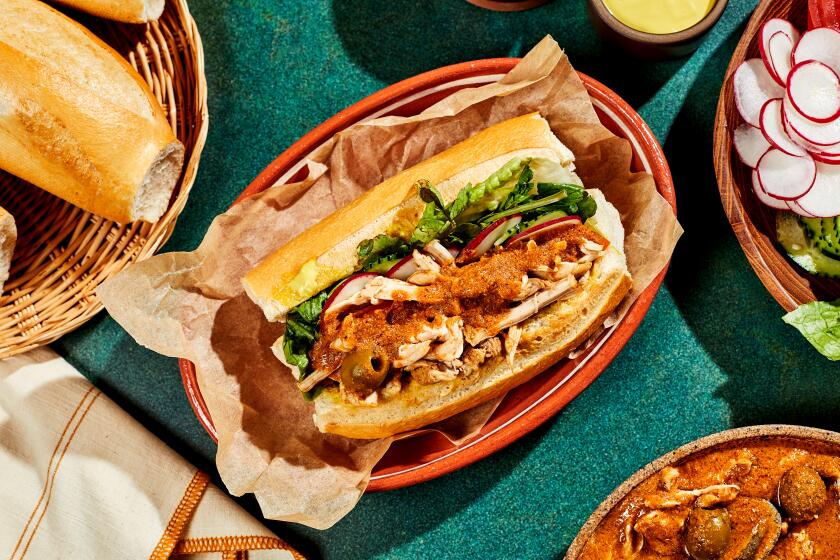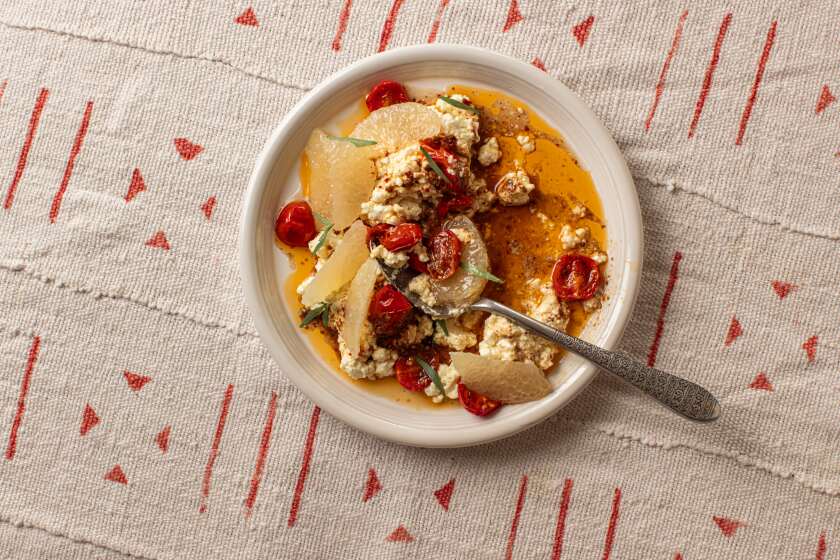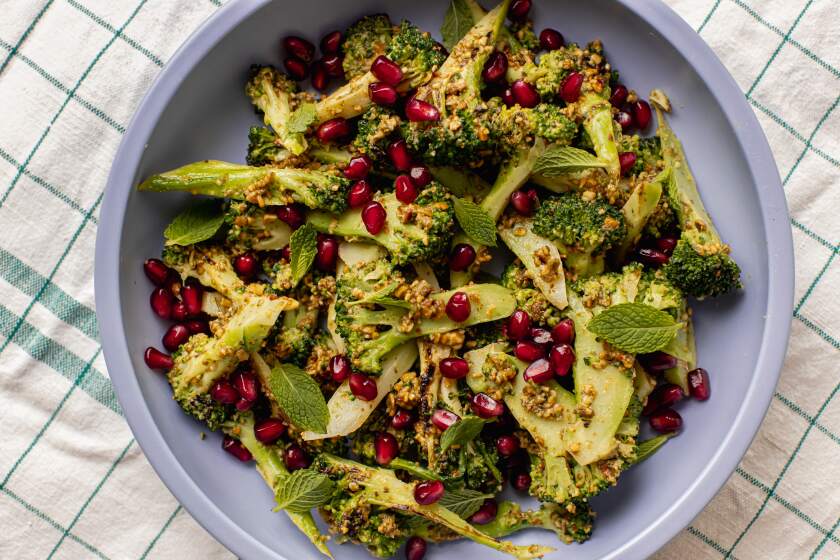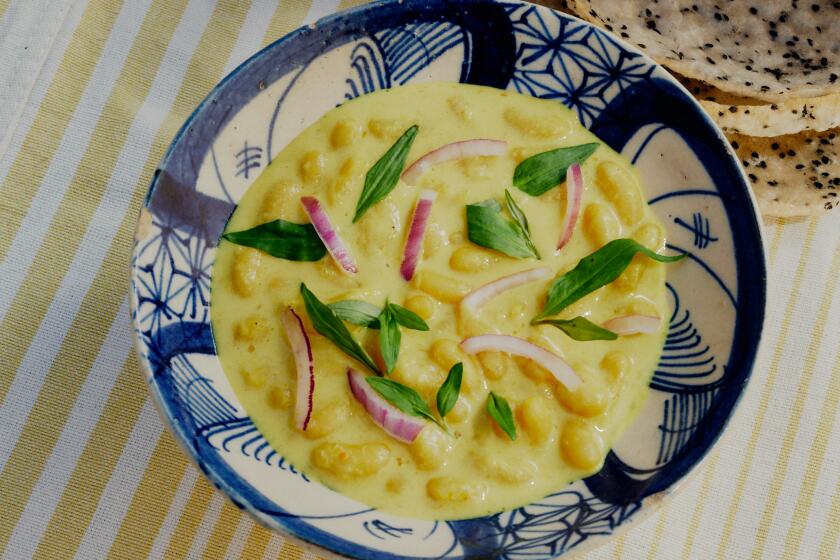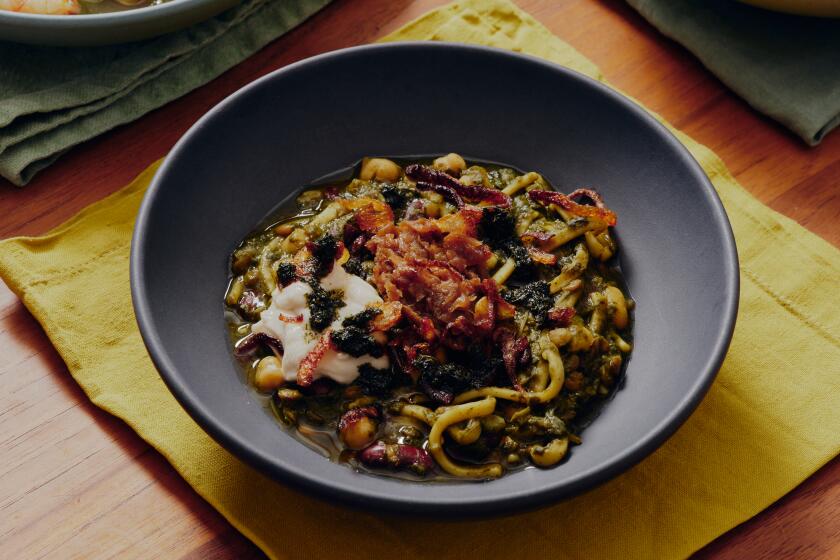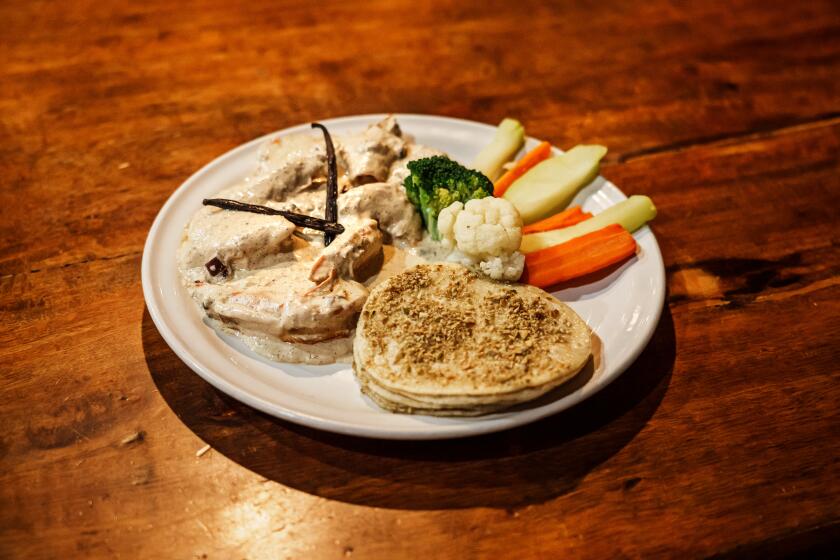Jonathan Gold's Favorite Potato Latkes
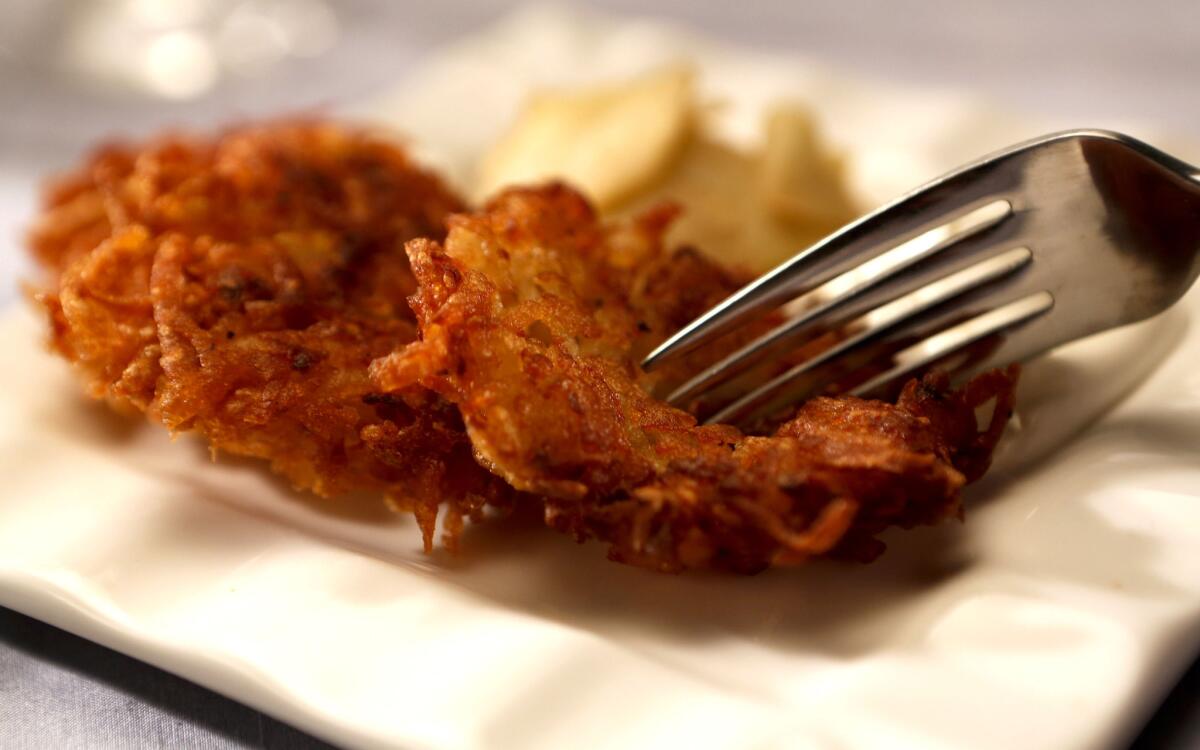
Wrap the grated potatoes in a tea towel, then wring them over a bowl, wait a minute, then wring them hard again. Pour off the foamy liquid and save the potato starch that has collected at the bottom of the bowl — the goo will help to bind your batter in a minute. Grate one onion for every one or two potatoes. Stir in salt, a bit of matzo meal or flour, the starch and as much pepper as you can tolerate. Squeeze again in the tea towel if you like — it’s good for the triceps. Stir in a beaten egg or two. You are ready to fry.
A little bit of oil is fine, but a lot is better.
Classic potato latkes
Grate the potatoes and onions, preferably by hand — it makes a difference. Transfer to colander set over a large bowl and knead to squeeze out liquid. Wait a minute or so and squeeze out liquid again. Transfer grated potato and onion to a second bowl. Pour off liquid from the first bowl, saving the starch that will have settled to the bottom. Scrape the starch into the vegetable mixture. Stir in the beaten eggs. Stir in the matzo meal. Add the salt and a lot of pepper. Pour the batter into the colander set over the first bowl, draining as much moisture as possible. It is vital to the fluffiness of the latke.
Heat a quarter-inch or so of oil in a cast-iron or other heavy skillet, until a strand of potato sizzles, then slide pancakes, about 2 to 3 tablespoons of batter apiece, into the pan. If you like thick, chewier pancakes, slide batter directly from spoon. If you like crispier ones, press them down in the oil. Whatever you do, handle as little as possible.
Fry until golden on one side, 3 to 5 minutes. Turn over and repeat on the other side, which will take much less time. Drain on brown paper bags or a rack — paper towels will make them soggy. Sprinkle with Maldon salt if so inclined. Serve with sour cream and sautéed apples.
Get our Cooking newsletter.
Your roundup of inspiring recipes and kitchen tricks.
You may occasionally receive promotional content from the Los Angeles Times.


